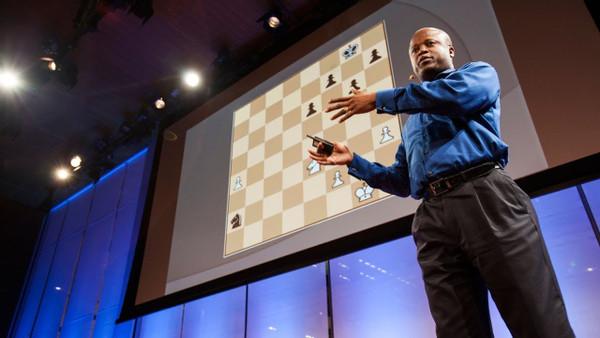The BIGGEST Mistake You're Making When Solving Any Problem
Curated from: TED-Ed
Ideas, facts & insights covering these topics:
9 ideas
·1.39K reads
13
Explore the World's Best Ideas
Join today and uncover 100+ curated journeys from 50+ topics. Unlock access to our mobile app with extensive features.
The Problem with Our Thinking
Example:
- Think about reading a sentence like, "After reading this sentence, you will realize the the brain doesn't recognize a second 'the.'"
When you first read it, you probably missed the second "the." This happens because our brains naturally move forward, ignoring breaks in logic.
35
239 reads
INTRODUCTION
Are you tired of struggling with problems and feeling like you're always getting it wrong? What if I told you the real issue isn’t your skills, but how you’re approaching the problem? You might be surprised to find out that the solution is often hidden in reversing your thought process. Stick around, and I’ll show you how this simple shift can make a world of difference!
32
176 reads
Retrograde Analysis
It means looking backward to solve problems. Instead of starting from the beginning, start from the end.
Example:
- Imagine bacteria doubling every day. If a lake is full after 60 days, when was it half-full? Many will say day 30, but the answer is actually day 59. If you think backward, it’s much easier!
- If you’re planning a trip, start with your return date. What do you need to do before that? Book your accommodations first, then plan your activities around that. This way, you’ll have a clearer vision of your itinerary.
35
183 reads
1. Start Chunking
Break down the problem into smaller parts. If you’re studying for an exam, instead of cramming everything, focus on one topic at a time.
Example:
- Study one set of deepstash a day instead of all at once.
- If you’re preparing for a big test, break your study material into sections. Instead of saying, “I need to study all of biology,” tell yourself, “Today, I’ll focus on cell structure.” This makes the task feel less overwhelming.
36
168 reads
2. Recognize the Patterns
Identify similarities in problems you’ve solved before.
Example:
- If you’ve struggled with math problems, recognize the common types of questions to improve.
- When writing an essay, notice the common structure in essays that scored high marks. Use this pattern—introduction, body paragraphs, conclusion—to guide your writing. Recognizing these successful formats can help you improve your work.
34
149 reads
3. Use The Stepping-Stone Method
Freeze a moment in the problem and visualize the next step.
Example:
- If you’re facing a tough decision, list pros and cons to see your options clearly.
- If you're deciding whether to join a sports team, think about the end goal first: Do you want to be healthier or make new friends? From there, consider what steps you need to take, like trying out for the team or attending a few practices.
32
138 reads
REAL-LIFE
Retrograde analysis can be used in various situations, from planning your career to making everyday decisions.
Example:
- When choosing a college, start with what you want to achieve after graduation, and work backward to select the right path.
- If you’re struggling to communicate with a friend, think back to times when you both connected well. What worked back then? Use those successful moments as a foundation to improve your current communication.
33
122 reads
CONCLUSION
By reversing your approach, you can find solutions more easily and avoid common mistakes. Remember, it’s not about being perfect; it’s about learning to see things differently.
Start applying this mindset today, and comment how your problem-solving skills improve after a month!
34
103 reads
IDEAS CURATED BY
CURATOR'S NOTE
We're often stuck trying to solve problems without realizing we're making a huge mistake. It’s time to change that!
“
Similar ideas
6 ideas
10 ideas
Read & Learn
20x Faster
without
deepstash
with
deepstash
with
deepstash
Personalized microlearning
—
100+ Learning Journeys
—
Access to 200,000+ ideas
—
Access to the mobile app
—
Unlimited idea saving
—
—
Unlimited history
—
—
Unlimited listening to ideas
—
—
Downloading & offline access
—
—
Supercharge your mind with one idea per day
Enter your email and spend 1 minute every day to learn something new.
I agree to receive email updates








